JOIN the AFICIONADOS
Get the insider news and lowdown on what we've been up to, where we've been, and who we've met along the way. Be the first to discover new places and get the scoop on our favourites.
The unique climate of Pannonia makes this edit of Austrian wineries special - long sunny days throughout the summer and ice-cold winter nights and the chalky soils create standout wines. We asked Barbara Eselböck, pioneer and co-owner of the legendary Taubenkobel Restaurant in Schützen am Gebirge, to pick out her favourite vineyards - not forgetting her sister's Gut Oggau winery - an early adopter of sustainable, biodynamic wines in the Burgenland region. But besides the family bond to in-house wines, Barbara has given us her five insider tips and a few comments about some of her viniculture friends.
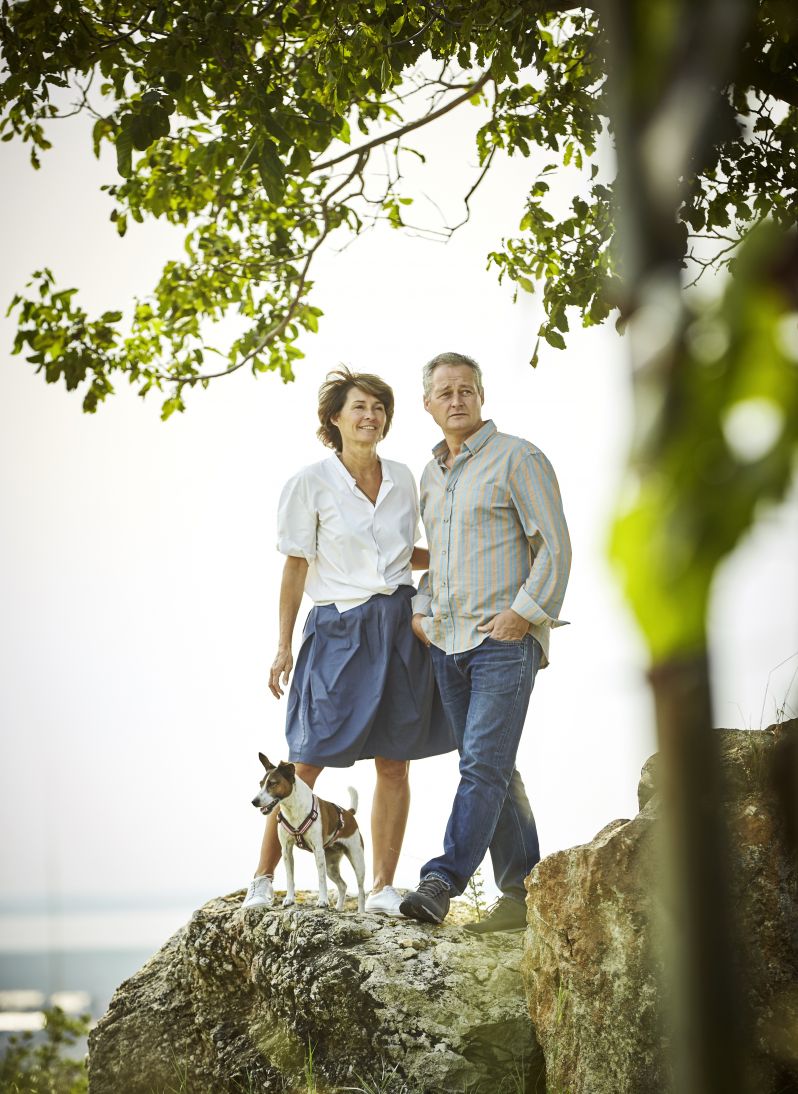
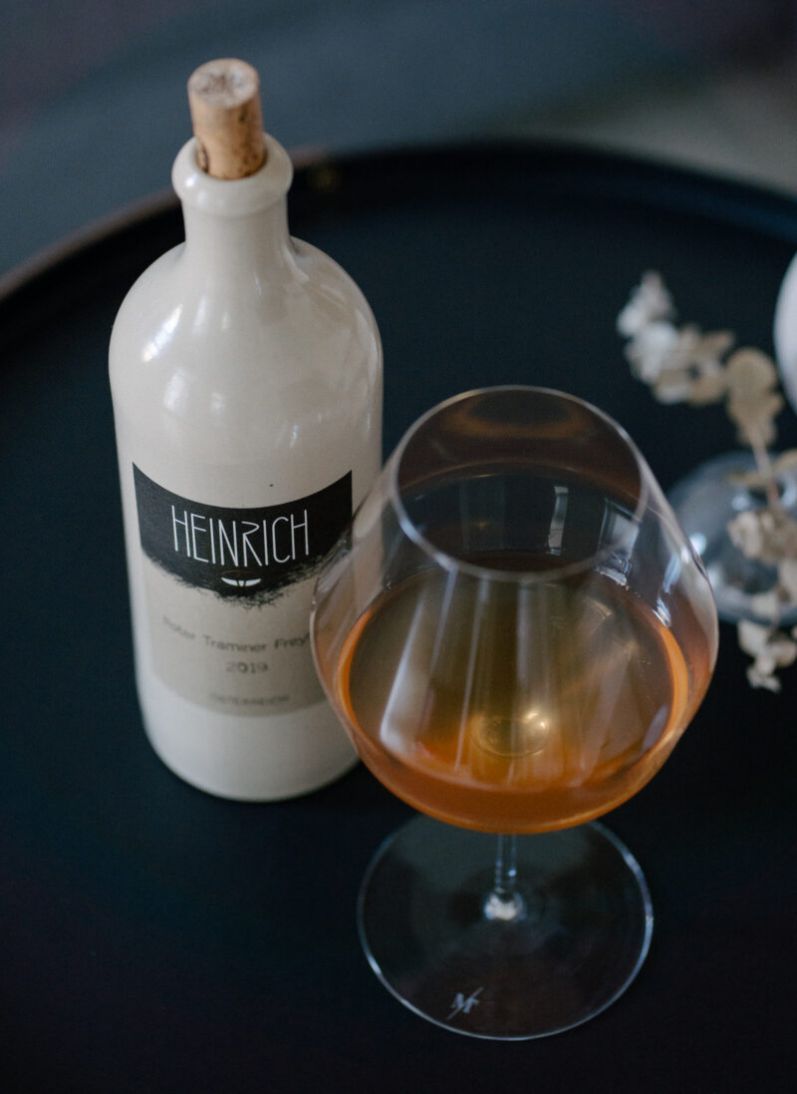
Winery Gernot Heinrich follows a simple ethical philosophy: great wines express a sense of place, and less intervention is the key to producing good wines. They can best do this when they are rooted in a biologically diverse environment where soil vitality is intact and, in 2006, converted to biodynamic viticulture.All of the wines are fermented spontaneously and often leave them on the skins for weeks; it is this timing, above all else, that shapes their wines. Time for some means weeks, for others years.
The estate's Neuburger Freyheit is exuberantly yeasty and exhibits the yellow-fleshed fruit of apple pie combined with the light fragrance of wild meadow herbs and the enlivening freshness of grapefruit zest. The loamy-chalky-sandy sediment is naturally low in fertility and relatively meagre, which provides ideal conditions for balanced growth of this rare autochthon grapevine variety. Stems from the Kurzberg vineyard in Mönchhof and limestone soils on the Leithaberg (Leitha Mountains).
A young family winery, Maria & Alex, cultivates the vineyards organically and with a low intervention idealogy and is located directly in Neusiedl am See. The quality is due to the attention to the growing season they require. Healthy grape material that is picked and sorted by hand so that it can then be processed particularly gently and quickly. The family has been making natural wine for more than 500 years and now it is the next generation's turn to continue with this tradition. Alex's father taught him everything which his father taught him – the knowledge about making ensouled natural wine. The duo adopt the holistic approach that any farming brings with it, a lot of responsibility. Winery Koppitisch focuses on Rudolf Steiner's biodynamic principles and make every effort to provide vineyards with what they need. Alex does everything by himself, with much help from his dad – Opa Leo. They make every single working step. Hence 15 acres of land imply quite some workflow; Alex is always out in the vineyards, whereas Maria takes care of communication and their boys – team future: Pauli & Alois & Jakob.
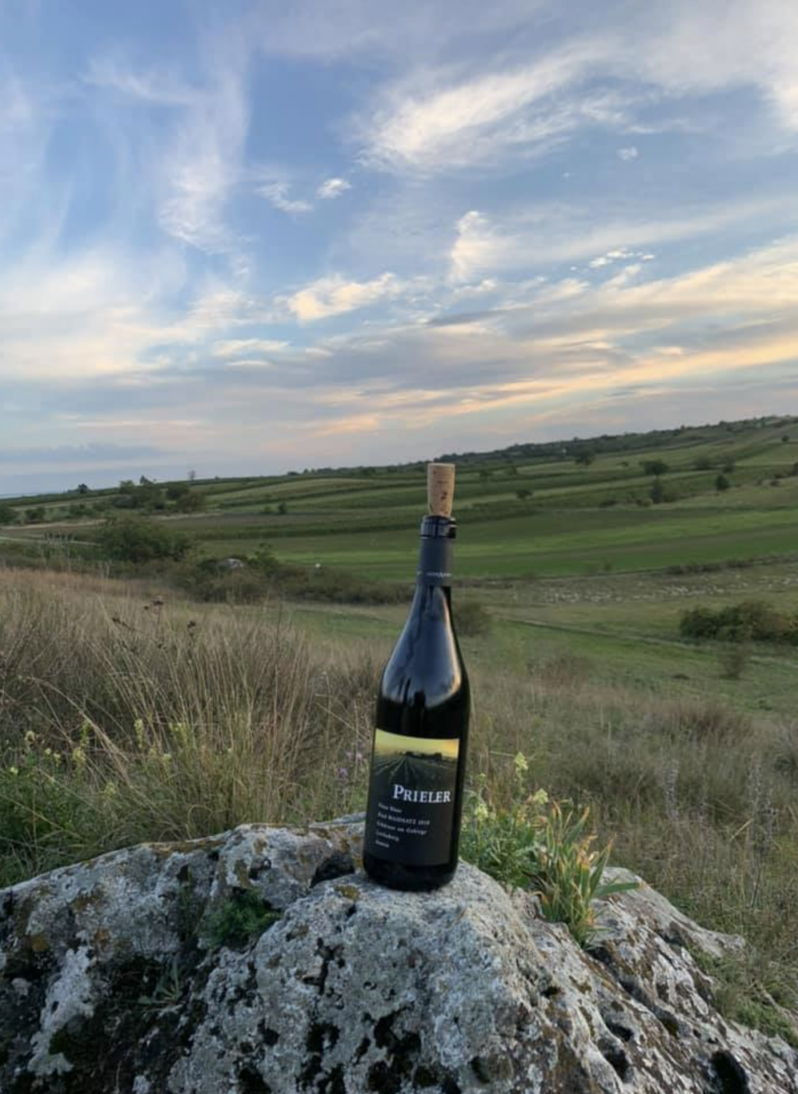
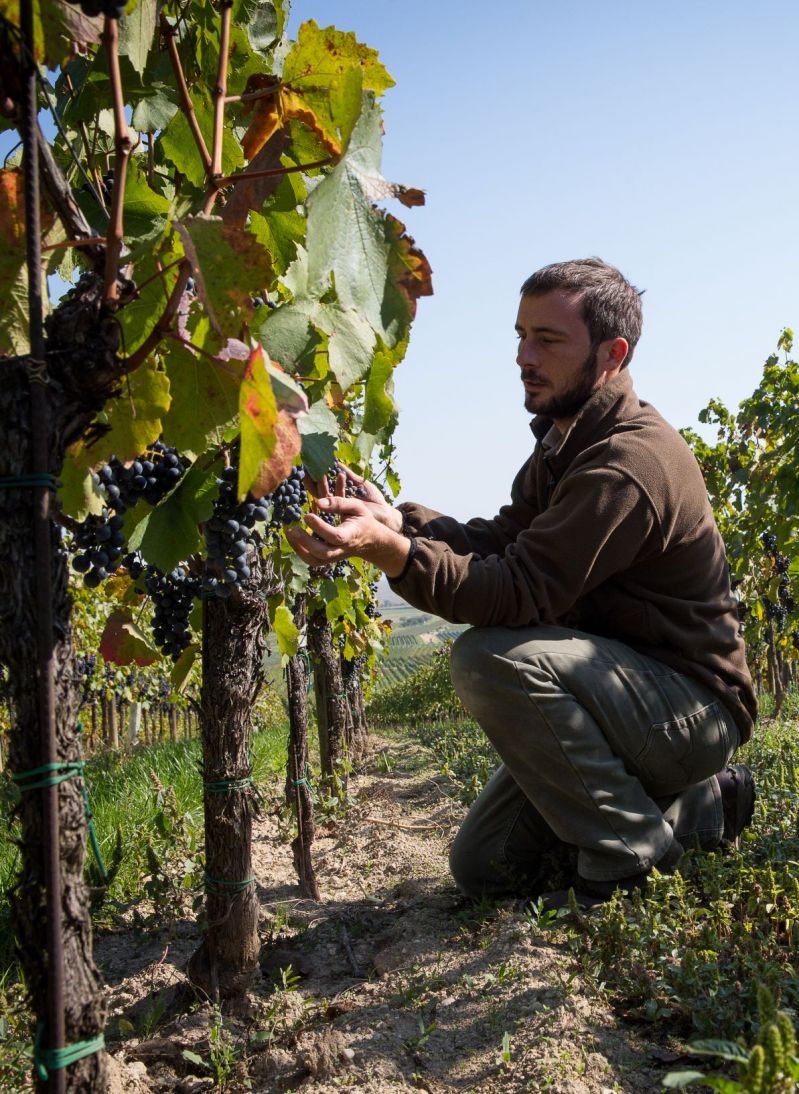
With family roots tracing back to 1347, this hot winery (recently voted "Vintner of the Year" in Austria) was founded by the grandfather and is a neighbour, and long-time supplier, of the Taubenkobel Restaurant in Schützen am Gebirge. The vineyards are located on plateaus, plains, and slopes that descend in gentle waves. The soils are usually rocky but also sometimes deep. As a result, the sites are frequently sun-drenched and warm, but some are cool and shady.
Around 100,000 vines grow in the vineyards, and son Georg professes to know each one and has a bond with the vines. "I prune them in winter, and I tie their shoots on trellis wires in spring. I adjust the leaf canopy to the weather in summer, and in autumn, I pick the grapes."
The estate took essential steps toward organic cultivation and allowed wild yeasts to run their course as pioneered by another sibling, a doctor of molecular biology.
Prieler’s focus on Blaufränkisch as well as Burgundian varieties such as chardonnay, pinot blanc, and pinot noir, which have a long history of cultivation in this part of Burgenland. Blaufränkisch is a headliner here, a variety famed for its often "capricious, challenging and stubborn nature." Rooted in limestone, it needs the sun; growing on schist, it requires refreshing winds.
"If you yield yourself to Blaufränkisch, you will understand why we fulfil all of this variety's desires. It is one of the few varieties in the world that perfectly balances energy and clarity.
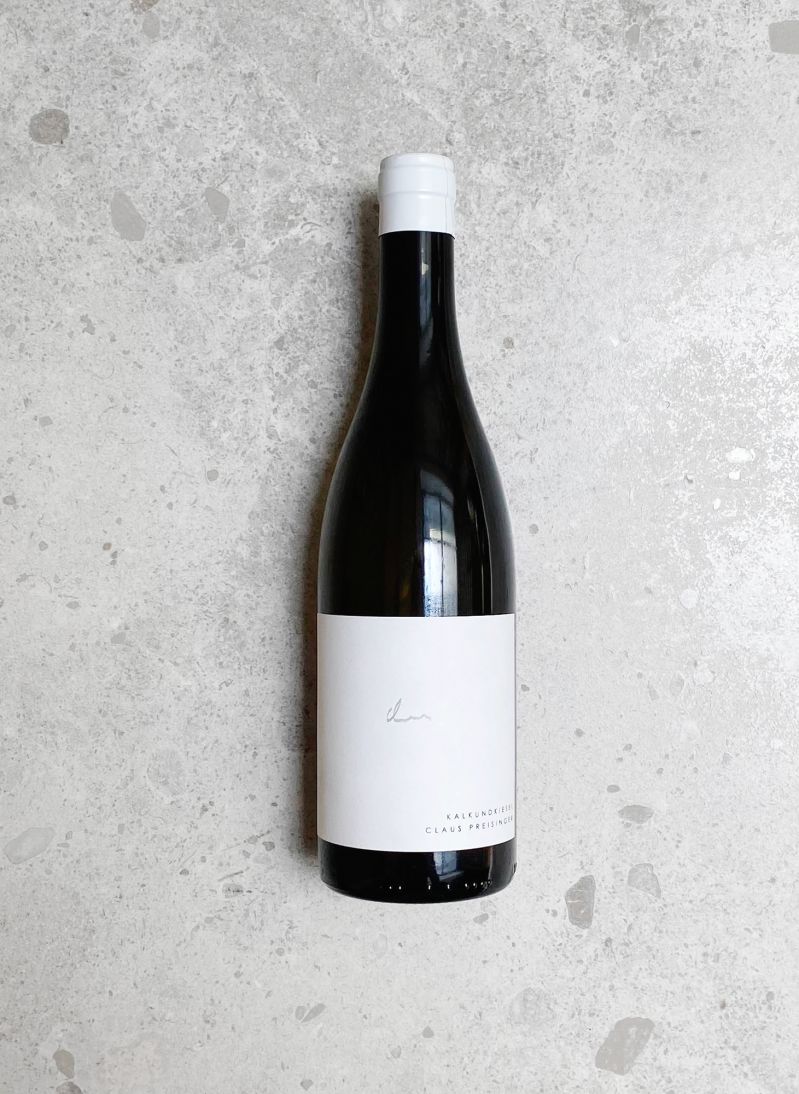
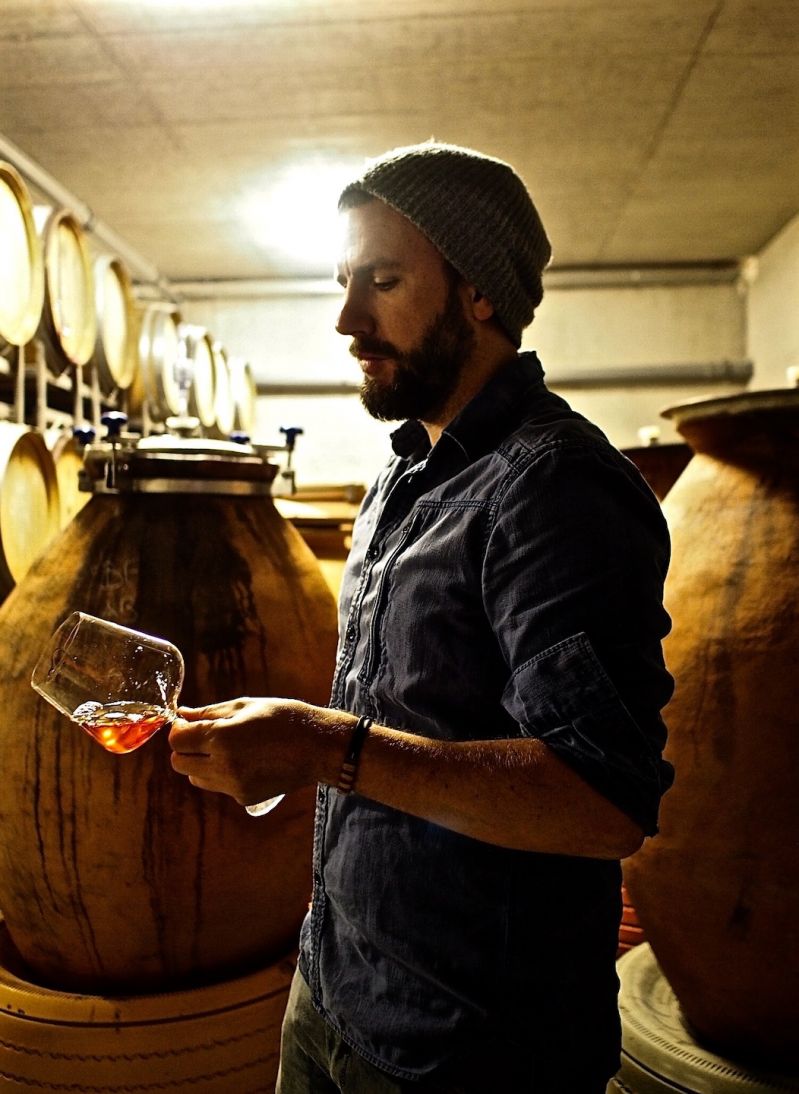
Another advocate of anthroposophist Rudolf Steiner, Weingut Claus Preisinger in the Austrian village of Gols, is an innovative, homoeopathic viticulture with a solid bond for the Pannonian climate so unique to this sunny corner of Lake Neusiedl and the nature of Burgenland. Claus Preisinger describes his work as low-tech, puristic and "from the gut".
Preisinger follows his instinct and produces wines that reflect his passion, knowledge and often playful approach to wine - try the Bühl 2012, a Pustza Libre, a Paradigma and a Pannobile or the name grabber, Dope a 2019 rose. His humble signature is all about nature, by letting it speak in his capable, creative hands.
A family organic winery in the third generation in Gols, Burgenland, manages 17 hectares of vineyards around Lake Neusiedl, producing beautiful Burgenland wines, which are role models due to their organic cultivation and sustainability.
Favoured by the sunny Pannonian climate, Winery Pittnauer relies on a natural approach and processing of the vineyards employing a wild, species-rich greening between the vines. Andreas Pittnauer leads the family business purposefully with a sustainable charter into the future. One of the favourite wines is their steel tank fermented Welschriesling 2021 - clear, delicate yellow tones, and a fine scent of juicy apples characterises this drop in which you can also feel the fruit very nicely on the palate. A harmonious acid balance makes this white wine the perfect companion for many dishes.